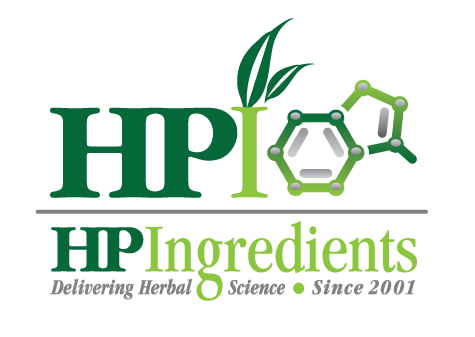As we know, numerous studies are being performed that are looking into COVID-19 – causes, symptoms, epidemiology, and of course, pharmaceutical solutions to cure and prevent it.
Exciting new research suggests that COVID-19 should be viewed and treated as an acute inflammatory disease. It is exciting simply because it reveals the genesis of what type of illness this is, what biochemical reactions create a favorable environment for this virus to take hold and flourish. And – labeling it an inflammatory disease can help efforts in finding a solution, and perhaps a tandem pluralistic one (combining the pharmaceutical with approved dietary supplements to help the body cope).
A team of scientists conducted a comprehensive analysis of worldwide COVID-19 data to identify key strategies moving forward to develop effective therapeutics.
In a press release announcing the study, lead researcher Masoud Manjili, DVM., PhD, performed a literature review among 20 key articles published in the Journal of Immunology in May 2020, after which he believes that COVID-19 should be treated as an acute inflammatory disease and that severity of infection is associated with the dysregulation of inflammatory immune responses and subsequent inability to develop protective immunity from the virus.
“Drugs that target the virus or suppress inflammatory immune responses have produced inconsistent results and might not be the best treatment for patients with COVID-19,” said Manjili. “Instead, the use of drugs that modulate inflammation without compromising the adaptive immune response could be the most effective therapeutic strategy.”
According to the CDC, most people with COVID-19 show flu-like symptoms and survive the disease. However, individuals with susceptibility factors, including age (65 years and above), sex and underlying health complications such as cancer, heart disease, diabetes or asthma, are significantly more vulnerable to infection because their immune response is in disarray. “Although over 90 percent of infected individuals are asymptomatic or manifest noncritical symptoms and will recover from COVID-19, those individuals presenting with critical symptoms are in urgent need of treatment options,” Manjili said.
Because viral loads are similar in symptomatic and asymptomatic patients with COVID-19, it appears that a dysregulated immune response is the primary cause of death as opposed to viral load, according to Manjili’s review. The most serious consequences of COVID-19 are sepsis-like cytokine storm (a severe overreaction of the immune system), blood clots and respiratory or cardiovascular complications. In response to injury or infection, the immune system will normally react with an immediate inflammatory response to limit the infection and help to develop a long-lasting, protective immunity against the virus within 7-10 days following infection.
“However, when inflammation is not modulated or resolved after serving its purpose, it turns into hyperinflammation or becomes chronic and results in the inhibition of adaptive immune responses, tissue damage or organ failure, as evidenced in many cases of the novel coronavirus,” Manjili said. “Therefore, understanding and successfully controlling inflammation would be a promising approach for the management of COVID-19.”
Manjili suggests that antiviral therapies such as chloroquine, hydroxychloroquine and remdesevir might be effective as preventive strategies or in very early stages of infection but could prevent patients from gaining protective immunity.
Andrographolide modulates the host immune response by effectively enhancing cytotoxic T cells, natural killer (NK) cells, phagocytosis, and antibody-dependent cell-mediated cytotoxicity (ADCC). Research had shown andrographolide to have antiviral, antimicrobial, and anti-parasitic effects, and has the ability to inhibit a pathogenic agent’s protein synthesis and expression, restrain the agent’s genome, reduces DNA replications and RNA copy, inhibit it from entering inside the cell wall, reduce the agent’s receptor signaling & decreases ACE2 expression.
In a recent study published in Journal of Biomolecular Structure and Dynamics, April 2020, Andrographolide showed potential as an inhibitor of the main protease of SARS-COV-2 (Mpro) through in silico studies. Andrographolide was docked successfully in the binding site of SARS-CoV-2 Mpro.
Although dietary supplements are prohibited from being marketed as treatments or cures for disease states, knowing how they act in the body in various circumstances can help the proper and most successful decision-making process.
Meanwhile, previous research has shown outstanding inflammatory response modulation of Andrographolide (ParActin).
Research has shown Andrographolide to activates peroxisome proliferator-activated receptor PPARγ, which has been recognized as playing a fundamentally important role in the immune response through its ability to inhibit the expression of inflammatory cytokines and to direct the differentiation of immune cells.
The high and increasing incidence of inflammatory and allergic disease, coupled with encouraging results from recent clinical trials, suggest that natural PPARγ agonists found in foods may be beneficial to human health by acting as anti-inflammatory molecules. Activated PPARγ then inhibits nuclear factor-kappaB (NFkB) — the key regulator of the immune and inflammatory response system. When you can turn off NFkB, you can reduce inflammatory cytokines and proteins that cause pain and inflammation, such as COX2, prostaglandins, interleukin-6, and other pro-inflammatory compounds. Andrographolide blocks the DNA binding activity of NF-kB. Andrographis support immune health by inhibiting NF-kB to help support healthy inflammatory response, reduce intensity and duration of winter health challenges, reduce fibrosis and injury.
It behooves individuals of all ages to keep “inflammation” in mind when being proactive about health, as Dr. Manjili’s study strongly suggests. Certain dietary supplements such as ParActin, have been shown to help promote a healthy Inflammation response, which is critical in times of physical, mental and emotional stress. Supplements do not cure or treat conditions such as COVID-19, but they support the body’s ability to better cope with such challenges.
More Evidence that Inflammation Impacts Health


